
propelling high-achieving, under-resourced students to and through college

STRATEGIC PLAN



propelling high-achieving, under-resourced students to and through college



By FY2028, Carolina Youth Coalition will serve 800+ Fellows and be the premier college access partner in Charlotte Mecklenburg. Carolina Youth Coalition will enhance its organizational capacity, launch two new locations, and deepen its relationships with current partner schools.
OUR GOAL
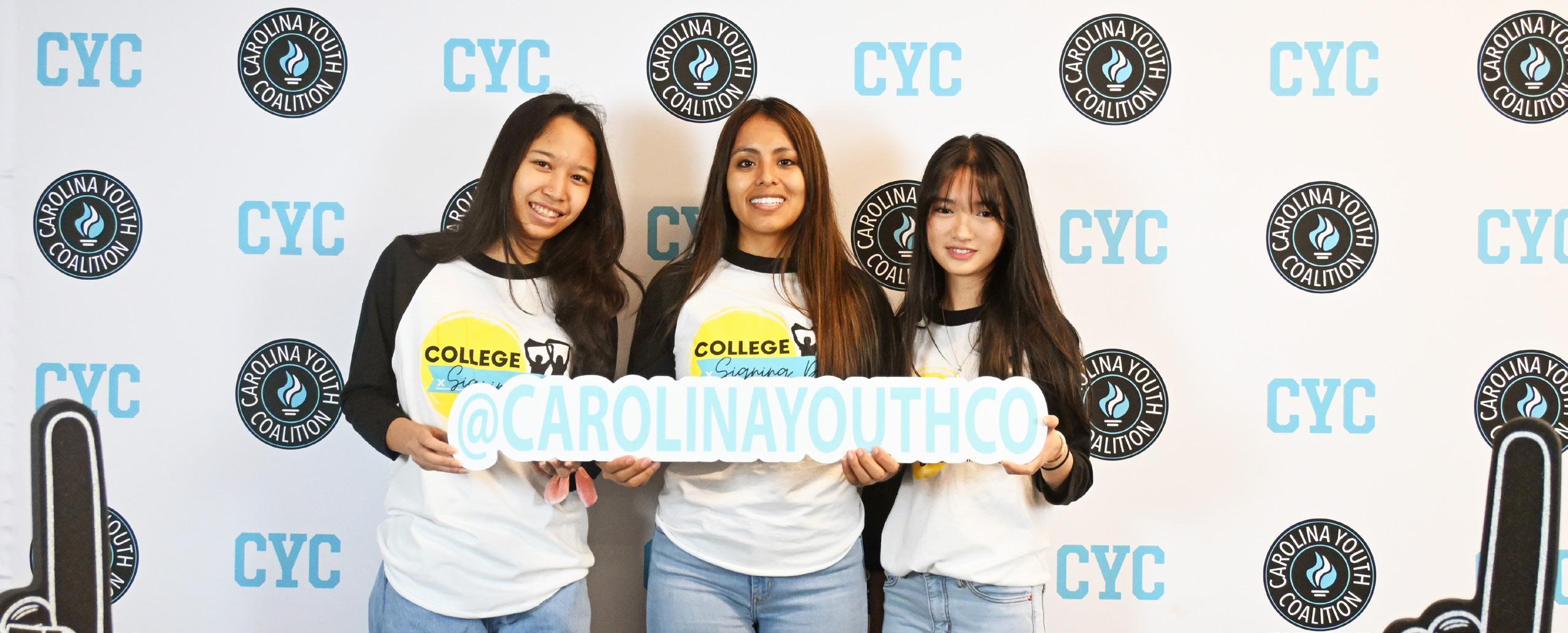
SchermCo partnered with Carolina Youth Coalition (CYC) in April of 2023 to build a data-driven strategic growth plan. During the partnership, CYC had several exciting initiatives that were in motion or recently concluded. A few of those include:
• Received a development assessment to test the feasibility of a $10M capacity-building campaign. The development assessment was submitted by Vandever Batten, a Charlotte-based organization that provides philanthropic strategies and fundraising support, in June of 2022.
• Confirmed a second location on the southside of Charlotte. CPI Security Systems donated this facility in May of 2023.
• Received an assessment of earned revenue options. This assessment was completed by JP Morgan Chase & Co. and Common Impact in June of 2023.
• Hired two key positions (Associate Director of Writing & Associate Director of STEM) to ensure the organization’s growth and proper staffing. These hires were finalized in August of 2023.
Our team leveraged these resources and events throughout this plan to honor these partners’ work and provide a comprehensive document to best guide the future actions of CYC.
In addition to what follows in this strategic growth plan, our team is encouraged by a few of the initial highlights we were able to support throughout this partnership:
• Connection to TIAA & Tepper Foundation to serve as potential funding and support partners.
• Brokered introductions to Palisades and South Meck High School, two schools near CYC’s second location, the Southwest Campus.
• Referral to Moonshot to provide social media support and staff capacity.
• Built a Corporate Volunteer Management process to create a system for corporate partners/volunteers and CYC staff.
• Submitted a Facility Expansion Checklist for CYC to leverage as they seek a third facility or shared space as they serve more students throughout Charlotte.
Our team is grateful for the opportunity to serve CYC and hopeful for their future as they support highachieving, under-resourced students to and through college.

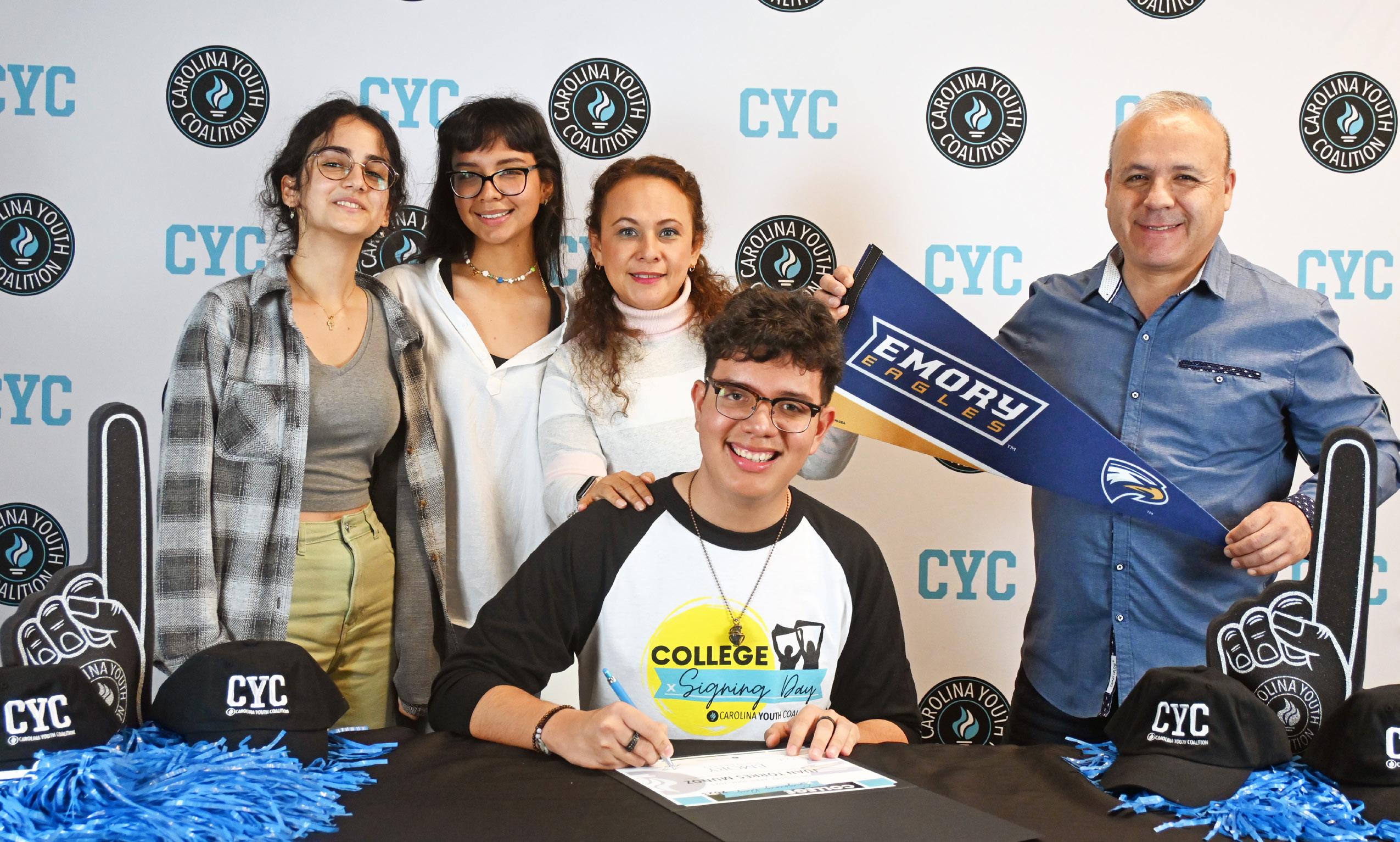
In 2018, co-founders Aaron Randolph and Kathryn Kissam founded Carolina Youth Coalition (CYC), a program for high-achieving, under-resourced high school students in Charlotte who participate in an 8-year college preparatory program. Within these eight years, students or Fellows, as they are referred to in the program, participate in grade-level programming focusing on their social and academic development. Throughout the school year, Fellows are immersed in core programming MondayThursday that prepares them for college readiness.
In April 2023, we began a partnership with Carolina Youth Coalition to determine a sustainable path forward in the areas of:
• Identifying market-based program growth areas that align with the organizational structure and sustainability of CYC
• Implementing the expansion of existing programming at an additional location
• Expanding CYC’s capacity to accommodate a greater number of Fellows
Below is a chart displaying the current state of CYC and the projected outcomes of the organization based on our findings.

Our team offers the following key findings from our partnership:
• CYC is well-received by stakeholders as a positive and impactful organization. They are recognized for their organizational culture, support of students, and willingness to collaborate with peer organizations.
• Executive Director Aaron Randolph is respected within the Charlotte community and has maintained strong relationships with key stakeholders.
• CYC has the opportunity to cement its position as the premier college access organization in Charlotte Mecklenburg.
• Opportunity exists for CYC to expand its programming and launch the Southwest campus in the southern part of Charlotte to support students that fit CYC’s target demographic.
• Opportunity exists for CYC to add capacity to its current staff, strengthen relationships with current school partners, and serve more students at current schools.
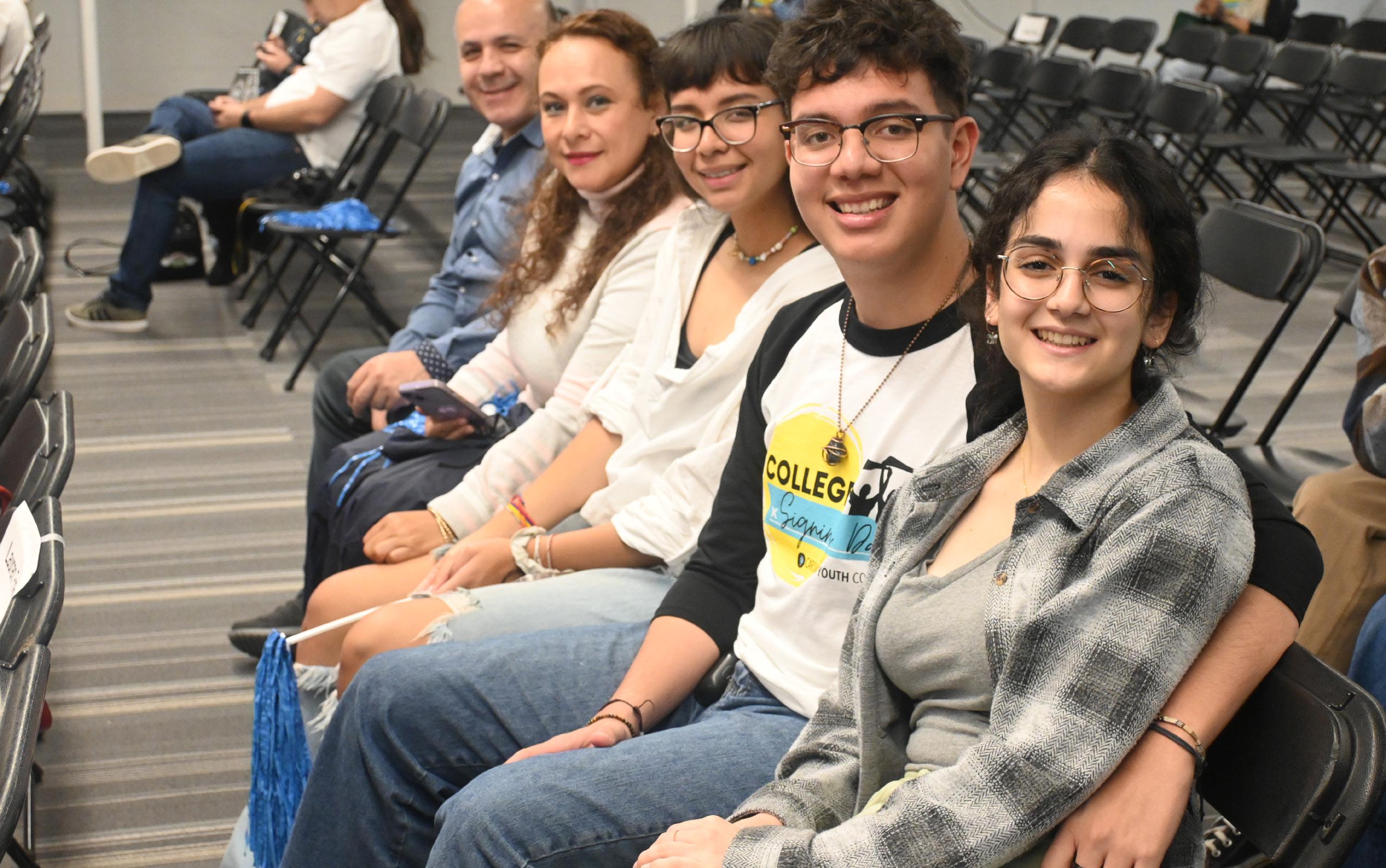
Below is a brief analysis of the organization’s Strengths, Weaknesses, Opportunities, and Threats from this strategic planning process. The themes were gathered from conversations and survey responses with 36 key stakeholders (including board members, school leaders, funders, current CYC College Fellows and community partners) and a review of the provided critical organizational documents and shared data.
• CYC is a well-known organization in Charlotte.
• Scholarships are provided to students from CYC funders.
• CYC represents a reliable support system for students who have parents that do not have a college background.
• The adult mentor is a beneficial asset to Fellows.
• The CYC Campus is close to East Mecklenburg High School, which is home to many Fellows.
• Utilizing data pertaining to student outcomes.
• There is an opportunity and demand for programming to grow throughout the Charlotte community.
• CYC may consider adopting a cohort-based model to serve more fellows at partner schools while also building deeper relationships with those schools.
• There is an opportunity for CYC to relaunch the Future Fellows program with appropriate staff and capacity.
• The physical capacity of the current CYC building can not accommodate additional Fellows.
• The current growth model is dependent upon physical space.
• CYC is not generating revenue from current school or community-based partnerships.
• Organizational culture must be prioritized during consistent growth and expansion.
• The organization does not have a succession plan.
• CYC must reflect on its current need for physical space and related costs as they consider growth.
CYC has a strong reputation with the Charlotte community; partners like the Albemarle Foundation, Merancas Foundation, and Bank of America have generously funded CYC in efforts to ensure longterm financial security for rising and current college Fellows. Further, Executive Director Aaron Randolph is regarded as a well-respected leader throughout the Charlotte community. In January of 2023, CYC had the unique opportunity to partner with the Charlotte Hornets as Aaron Randolph received the Social Justice Power Forward Award.
Leaving home for many students is uncommon and, for some, impossible due to financial hardships; the ability to provide scholarship funds through CYC’s programming allows students to broaden their college search without having the barrier of paying full tuition.
Stakeholders expressed high regard for the academic rigor and college readiness provided by CYC staff members. The program begins during a student’s first year of high school, Fellows are provided mentors and advice throughout the school year to support them in their academics and college preparatory journey. After school, Fellows are encouraged to attend CYC programming at their East Charlotte office location. CYC has a primary office near East Mecklenburg High School in East Charlotte. CYC provides students with a sense of community within the office while having the ability to reach students at 43 different high schools in the Charlotte area.
The current building that accommodates CYC programming has reached its physical capacity, making it unable to accommodate the projected addition of Fellows for FY24. As the program gains applications and interest from more students,
“I
honestly wouldn’t be in the position that I am in right now without CYC. I had no idea what the college application and scholarship application process was and without CYC, would not have done it successfully. My mentor led me every step of the way and with their guidance wouldn’t be able to do any of it. Additionally, the writing coach has taught me skills that I still use till today!”
the limitations of the building make it difficult to grow. This poses a significant challenge as the organization strives to meet increasing needs and demand. Without adequate space to accommodate additional Fellows, the program’s expansion is complex, hindering the outreach of services within the Charlotte area.
CYC has successfully attracted students, gained community support, and built meaningful relationships with corporate and foundation partners. However, CYC does not currently have any earned revenue. It will be important for CYC to explore earned revenue partnerships with the high schools they serve, college partners, and other sustainability practices (endowment) as they continue to grow. Diversifying funding streams and becoming more sustainable will allow CYC additional opportunities to grow and sustain its model.
The program’s current growth presents a promising opportunity to expand its reach and impact within Charlotte. CYC has established itself as a leading organization that supports students to and through college. Given the growth of serving 300+ total Fellows in five years, opening a second physical location will create additional capacity to serve more deserving students throughout Charlotte. By strategically expanding its presence, the program can tap into additional communities, fostering a sense of inclusivity and broadening its impact on the overall educational landscape in Charlotte.
Further, this growth allows CYC to rethink its partnership model with students. There is an opportunity to implement a cohort-based model that allows CYC staff to serve a specific number of Fellows at each school. This would enable staff to help more students at partner schools and establish deeper relationships with teachers, support staff, and Principals at these schools. An increased relationship with these stakeholders would allow for improved communication and support to serve CYC Fellows best.
CYC must be mindful of maintaining its close-knit community and culture as it considers continued growth. As the organization scales, stakeholders fear that the close connections and personalized support might diminish, leading to a potential disconnect. Further, CYC will be required to analyze their current dependency on physical space concerning their ability to serve more Fellows and their overall growth model. As with many organizations at this stage in their lifecycle, Executive Director Aaron Randolph is viewed as the key driver. The organization will benefit from providing leadership development opportunities to other executive staff members and formalizing a succession plan to be prepared for a leadership transition.
This strategic growth plan will expand upon the SWOT analysis findings and provide additional insights to best serve the organization and its stakeholders.

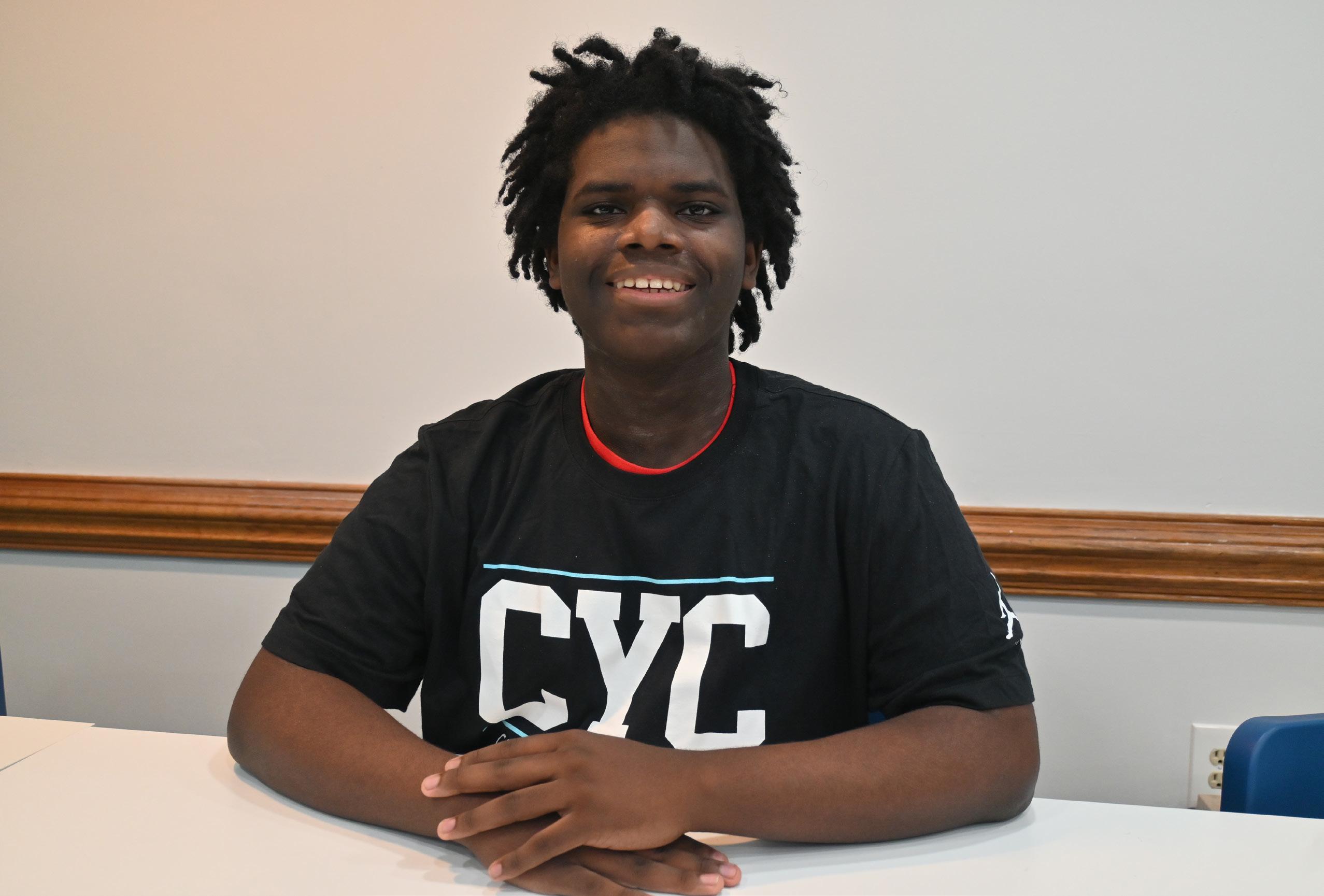
CYC is a non-profit organization in Charlotte, NC, serving students across 43 schools. The organization was co-founded by Aaron Randolph and Kathryn Kissam in 2018. As rising freshmen in high school, students have the opportunity to apply to be a part of CYC’s program for the remaining seven years; priority is given to students who are first-generation college students, students with a 3.3 GPA, and those whose family makes less than $60,000 a year.
CYC’s office, located on the East side of Charlotte, near East Mecklenburg High School, offers weekly programming to students who may have limited knowledge of the nuances of the college application process and what it means to be college ready. CYC provides students with a holistic experience through the following:
• 1:1 Mentoring
• Weekly personalized standardized test prep
• Individualized support with college essay writing
• SAT/ACT preparation
• Assistance in completing financial aid documents
• Assistance applying for scholarships
• College tours and information sessions
• Individualized college transition support
CYC’s ultimate goal is to assist Fellows with the college process and seek funding to ensure Fellows are set up for success after high school graduation. Funders and stakeholders noted the importance of scholarship contributions to support CYC Fellows. As identified in the Vandever Batten report, CYC and the Board should consider sustainability options to provide scholarship support without stretching the help of current funders.
“CYC changed the course of my life. Without them I would not have been well informed about the college application process and college itself. I learned about QuestBridge from CYC faculty. I got help with scholarship interviews and had a good mentor.”

CYC provides a comprehensive program to empower and support young individuals in their educational and professional journeys. Through mentorship, workshops, and resources, the program aims to equip Fellows with the skills and knowledge necessary to excel academically, explore career opportunities, and become engaged members of their communities. By fostering personal growth, academic achievement, and career development, CYC strives to create a brighter, more promising future for high school and college students.
CYC offers two programs for CYC Fellows; beginning during a student’s first year of high school, students can apply for CYC. Torch Fellows are students in grades nine through twelve. The program offers a dynamic and immersive experience through its weekly college programming aimed at fostering college readiness among students.
The Torch Fellows program goes beyond traditional academics by combining mentoring, focused homework assistance, enlightening college tours, and assistance with essential college preparation documents. By engaging with dedicated mentors and CYC staff, Fellows receive personalized guidance that caters to their strengths and growth areas. The meticulously curated college tours provide firsthand campus exposure, helping Fellows envision their higher education path. Additionally, the program equips participants with invaluable college preparation documents, empowering them
with the tools to navigate the application process confidently. This individualized approach ensures that Fellows excel academically and develop the holistic skill set required for a successful transition to higher education. Additionally, all CYC Fellows receive tuition scholarships through community partners like the Jordan Wings program, which allows high school seniors to attend college for free.
The second program, College Fellows, is offered during the summer after a Fellow’s high school graduation. Spanning all four years of college, this program offers an unwavering commitment to student success by providing continuous support and mentorship. Recognizing the challenges that can arise during the college journey, the program is designed to assist Fellows in persisting through obstacles and reaching their academic and personal goals. With a focus on nurturing long-term relationships, Fellows are paired with dedicated mentors who offer guidance, encouragement, and valuable insights. Through regular check-ins, workshops, and resources, the program ensures Fellows have the tools and knowledge to overcome challenges and make the most of their college experience. By fostering a sense of belonging and empowerment, this program strives to empower Fellows to thrive throughout their collegiate journey and beyond.

To best serve CYC, our team analyzed eight similarly positioned organizations. Four of these organizations are local to Charlotte, and the remaining are outside the Charlotte market. Specifically, these organizations were reviewed to understand their scope, growth models, and other elements to best position CYC for growth. The following pages compare similar, key information across all organizations.
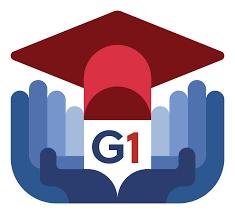
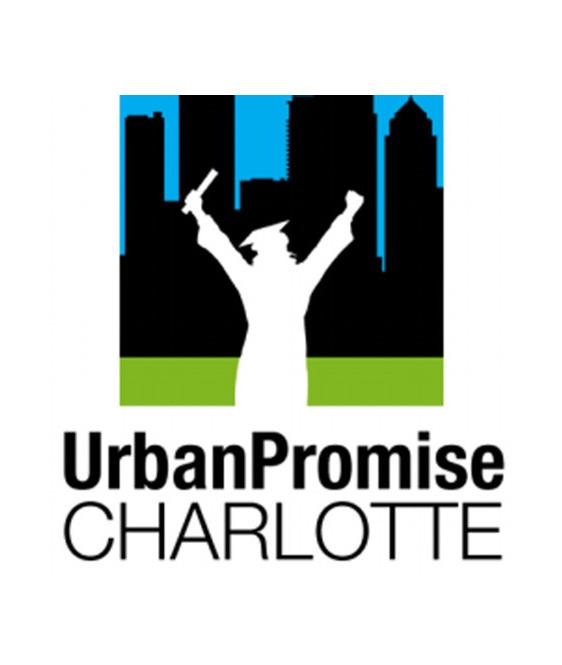







Founded: 2016
GenOne is a prominent organization based in Charlotte, North Carolina, that was established with the vision of transforming the educational landscape for underprivileged youth. Founded by Ian Joyce, in 2016, who recognized the pressing need to provide comprehensive support to students from disadvantaged backgrounds, particularly with a focus on immigrant and refugee populations. The organization’s program model revolves around a holistic approach to education for rising seventh graders attending highpoverty public schools in Charlotte. GenOne involves students and their families in year-round academic and cultural programming lasting through high school graduation. GenOne targets first-generation students who aspire to pursue higher education. Through mentorship, academic guidance, career readiness, and life skills development, GenOne empowers these students to overcome socio-economic barriers and achieve their academic and personal goals. With a deep commitment to fostering lasting change, GenOne is dedicated to equipping the next generation of leaders with the tools and opportunities they need to succeed.
• 87 %
• GenOne students have received 2 million in
• 80% of students graduate debt free


Urban Promise, a non-profit organization located in Charlotte, North Carolina, was established with a transformative vision to uplift and empower underserved communities. Founded in Charlotte in 2009 by Jimmy McQuilkin, who recognized the urgent need to create positive change in the lives of young people facing adversity. The organization’s program model is centered around holistic community development, focusing on education, mentorship, and leadership training. By offering after-school programs, academic support, and life skills training, Urban Promise serves individuals ages 5 to 25 years old, and aims to equip children and youth with the tools they need to overcome challenges and reach their full potential. With a strong commitment to fostering hope and creating lasting impact, Urban Promise continues to be a beacon of opportunity and empowerment for the youth and families it serves. The organization has also been fortunate to receive substantial support from faith-based communities.
• Over the last six years, 100% of Urban Promise’s 87 senior StreetLeaders have graduated on time and received college acceptance.


Queen City Scholars (QCS) is an expansion site of Delaware College Scholars (DCS), a non-profit organization based in Delaware who recently launched a cohort in Charlotte, NC, currently operating in West Charlotte High School. The organization began in Charlotte in 2019 serving 10 students. Starting with a student’s sophomore year of high school, the program is tuition free for seven years. During these seven years, students are a part of a summer residential experience, provided to immerse students in college-level courses and navigate the complexities of a college campus. Most QCS participants are first-generation high school graduates and college students. Being a firstgeneration student can place more pressure on a scholar with little knowledge of the nuances of the college application process and what it means to be college ready. QCS provides students with a holistic experience, through individualized support with all college preparatory documents. It should also be noted that QCS and CYC currently have a productive working relationship. Dr. Tony Alleyne, Founder and Executive Director of QCS, and Aaron Randolph have been connected for multiple years and are in open conversation about how both organizations can collaborate to best serve students throughout Charlotte.
• DCS has provided a residential experience to nearly 400 students in Delaware and began serving students in West Charlotte High School in 2020.

30 HS Students 10 College Students

Outcomes
• 95% of Road to Hire scholars will graduate debt-free
• 100% of Golden Door scholars enroll at universities where they pursue a degree and graduate without crippling debt.
Road to Hire is a dynamic organization rooted in Charlotte, North Carolina, founded by Rick Elias, with significant support from Red Ventures. Red Ventures partners with Road to Hire to support its mission by providing resources, mentorship, and job opportunities to the participants in Road to Hire’s programs. This partnership is part of Red Ventures’ commitment to community engagement and helping to bridge the opportunity gap for young people who might not otherwise have access to career development resources and employment opportunities. Road to Hire addresses the opportunity gap by providing comprehensive training, mentorship, and job placement in the fields of technology and business. The organization’s program model combines skill development, professional training, and hands-on experience to equip participants with the practical skills and knowledge needed to thrive in today’s competitive job market by offering apprenticeship programs with local businesses and industry leaders. Years Operational

Full-Time Employees
Charlotte, North Carolina
766 HS Students
314 College Students
Charge employer partners a fee of $20,000 per student for the apprenticeship program

Outcomes
• 70% of students qualify for free or reducedprice lunch
• 58% of students will be the first in their families to attend college

Student U is an organization that was founded in Durham, North Carolina, with the vision of ensuring educational equity and empowerment for young learners. Established in 2007 by Alexandra Zagbayou and Charlie Rose, Student U has since been dedicated to providing comprehensive support to students from middle school through college. The organization’s program model encompasses a holistic approach, offering academic enrichment, mentorship, college preparation, and career guidance to students, primarily from underrepresented backgrounds. By nurturing a culture of excellence and fostering a strong sense of community, Student U equips students with the tools and confidence they need to succeed academically and beyond. Through its innovative and student-centered approach, Student U continues to make a lasting impact on the lives of countless students, empowering them to reach their full potential and become leaders in their communities. Years Operational
Full-Time Employees

The Opportunity Network (OppNet) is located in New York, founded in 2023, and currently serves over 500 students within more than 100 different high schools within the city. The organization focuses on providing access to both educational and professional opportunities for students in underserved communities. OppNet provides two programs, the OppNet Fellows Program, is a six-year experience that begins the summer after a high school student’s 10th-grade year. This program provides students with mentors, career development resources, and scholarships. A comprehensive program that looks to bridge the opportunity gap by preparing students to acclimate into a professional society. In addition, OppNet offers the Career Fluency Partnerships Program, a capacitybuilding program for youth and schools across the country looking to prepare their students for workforce readiness.
Outcomes
• 92% of OppNet Fellows graduate from college, more than 90% of whom will be the first in the family to do so, and 89% secure jobs that align with their career interests or admission into graduate school within six months of college graduation.

Greenhouse Scholars is a nationally recognized organization headquartered in Denver, Colorado, that was established in 2005 by Pete Burridge and Michael Aronson. The organization is dedicated to supporting high-achieving, underrepresented students from across the United States. Through its innovative program model, Greenhouse Scholars provides Scholars with not only financial assistance but also personalized mentorship, leadership development opportunities, and a supportive community network. This multifaceted approach aims to empower Scholars to excel in their higher education journey and to become impactful leaders in their respective fields. By offering support that extends beyond financial aid, Greenhouse Scholars is committed to breaking down barriers and equipping talented students with the resources they need to achieve their full potential.
• 97% of Greenhouse Scholars graduate from college as compared to 15% of their peers from the lowest income backgrounds.
• Nearly 80% of Greenhouse Scholars have started at least one nonprofit business, community group, or campaign for change


Rutgers Future Scholars has been serving students in New Jersey since 2008, offering 215 first-generation, low-income middle school students summer programming that is meant to prepare them for college. Programming continues through a student’s high school journey, providing students with college preparatory classes, and mentoring that give students additional academic rigor during high school. After five years in Rutgers Future Scholars, students who are accepted into Rutgers University receive tuition assistance with a scholarship to the university.
• When students complete the 5-year program, they are eligible for scholarships and financial aid through the Rutgers Future Scholars Foundation.
After reviewing stakeholder feedback and comparable organizations to CYC, the organization’s success within the short five years has stood out immensely among other organizations. Although Opportunity Network’s college readiness program aligns most with CYC, CYC’s close-knit community of Fellows is unlike any other organization. CYC’s mentorship and the ability to work directly with students personally creates a unique cadence that may be lost in larger organizations. CYC has the opportunity to grow in the Charlotte community, granting more students the opportunity to attend college over four years. With its proven track record of success, CYC’s expansion could significantly broaden its reach and positively impact the futures of even more underserved students. Notably, CYC stands out as one of the only organizations in Charlotte, NC, that actively tracks students through college, demonstrating a deep commitment to ensuring long-term success and continuously refining its programs based on valuable post-secondary outcomes. This unique approach showcases CYC’s dedication to getting students into college and supporting them throughout their higher education journey, ultimately contributing to the cultivation of wellrounded and accomplished individuals.
2 The following organizations were also researched and considered in the market analysis: Young Black Leadership Alliance (YBLA), Baton Rouge Youth Coalition (BYRC), and OneGoal. Our team is happy to share more information about these organizations upon request.


CYC currently serves 253 Torch Fellows across 43 diverse, high schools in Charlotte. Yet, the range of students supported at each school differs from 1-50+. Further, CYC serves ten or more students at approximately 12% of partner schools.
Our research and stakeholder conversations indicate a high possibility of enough demand/need at each partner school to serve additional students.
Serving more students at each school will allow CYC to go deeper with those familiar with their model, aggregate school-based data for a more significant sub-group of students, and thus build deeper connections with school staff and leaders with budget authority. This strategy will also allow CYC staff to concentrate their recruitment and student support efforts and, ideally, ease staff capacity. Lastly, going deeper at current partner schools
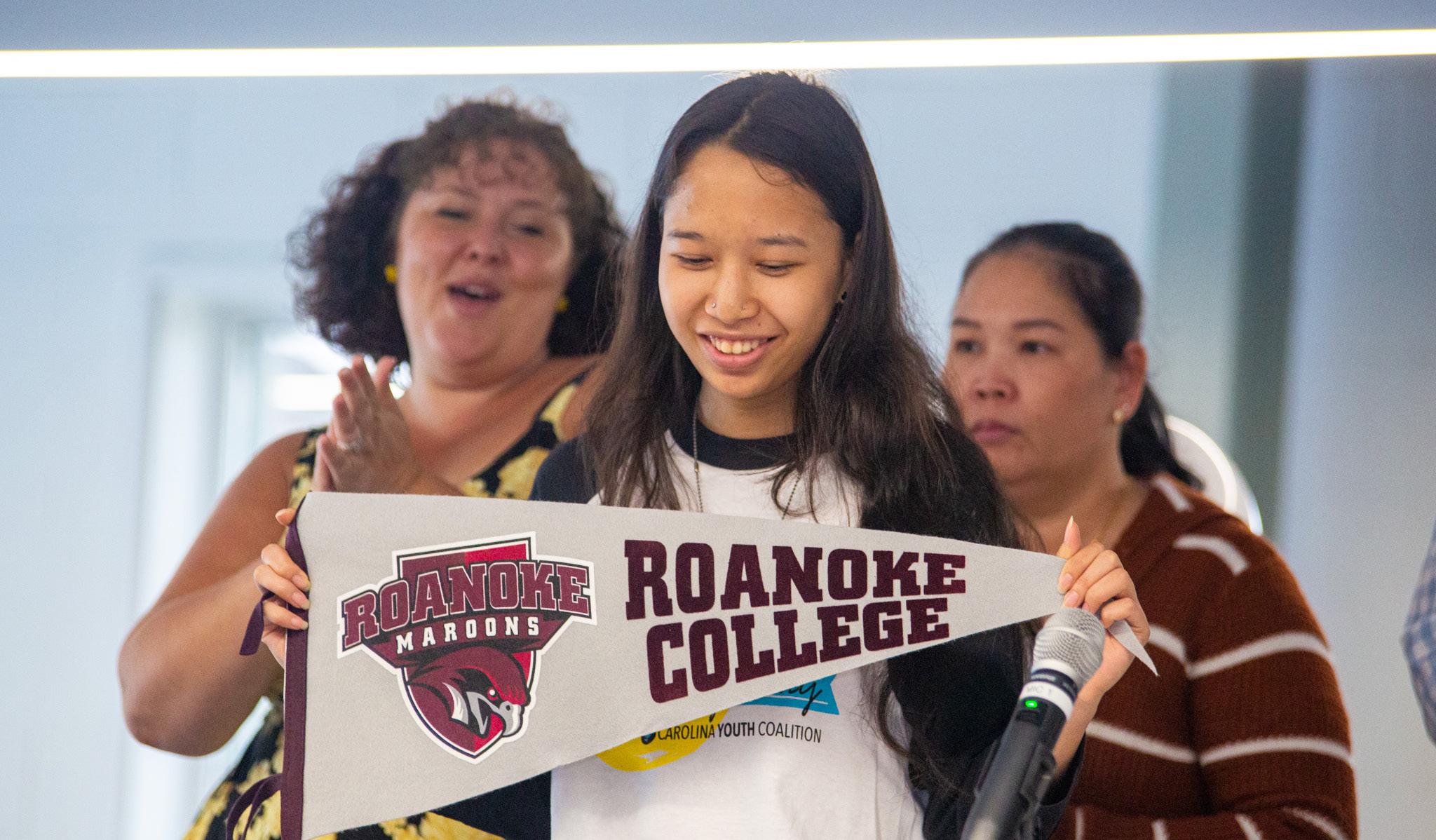
The establishment of an additional site location for CYC holds immense significance as it brings a multitude of benefits and opportunities. First, it expands the organization’s reach and accessibility, allowing it to serve a broader audience and impact more students and communities. This increased presence can also lead to heightened brand visibility and awareness, fostering a stronger reputation and credibility. Currently, Charlotte’s under-resourced communities are typically a part of the Crescent, however, this leaves students who may benefit from CYC’s services, forgotten due to attending a school in an area deemed affluent.
The expansion of CYC has the opportunity to facilitate better engagement with the Southwest Campus, enabling CYC to tailor its programming and culture to meet specific needs in this area of the city. Overall, an additional site location empowers the organization to grow, adapt, and
make a more profound and lasting difference in the lives of students. CPI Security has contributed a facility intended to be used as an additional site location for CYC Fellows, located in Southwest Charlotte. This facility is 4,000 square feet and can serve an occupancy of 200 Fellows. For comparison, CYC’s current site is 5,500 square feet with a max occupancy of 200 Fellows (pending future renovations to expand the occupancy to 300 Fellows). This site is scheduled to open in September 2024.
Additionally, current school partners shared that proximity to CYC’s current site has been a top determinant of CYC Fellow success. Launching a second site will enable CYC to provide programming local to schools such as Palisades High School, Olympic High School, and South Meck High School. This geographic advantage creates new accessibility for Fellows who will have a short commute to CYC’s new building location.
In FY24, CYC served 255 Torch Fellows across 43 diverse, high schools in Charlotte. Yet, the range of students supported at each school differs from 1-69 (East Meck). Further, CYC serves ten or more students at approximately 16% of partner schools (7/43).
Our research and stakeholder conversations indicate a high possibility of enough demand/need at each partner school to serve additional students. Serving more students at each school will allow CYC to go deeper with those familiar with their model, aggregate school-based data for a more significant sub-group of students, and thus build deeper connections with school staff and leaders with budget authority. This strategy will also allow CYC staff to concentrate their recruitment and student support efforts and, ideally, ease staff capacity. Lastly, going deeper at current partner schools could present additional support opportunities for philanthropic partners to “adopt a school” or serve as the premier partner to support college access in partnership with CYC.
For context on market size, Charlotte-Mecklenburg Schools (CMS) has 184 total schools and serves approximately 140,000 students. Of all CMS schools, 102 are Title I schools, 35 are high schools, and eight of the high schools are considered Title I. Regarding students that align with CYC programming, CMS has an approximate average daily membership (ADM) across those 35 high schools of 43,000 students (9th-12th grade). Let’s assume approximately 32,000 students in CMS (about 75% of total high school ADM) are in grades 9th-11th and eligible for CYC services. It should be noted that CYC prioritizes students who:
• Are First generation college-going
• Have a GPA of 3.3 or better
• Live in a household with an income less than $60,000 or demonstrate financial need
It’s challenging to obtain public data that includes those three factors. Yet, if we assume 15% of the 32,000 CMS students align with the priorities of CYC, then approximately 5,000 students in CMS could be considered an ideal target audience for CYC. Thus, CYC currently serves approximately 4% of the ideal target audience in CMS.
With this data in mind, CYC may consider serving a minimum of 10 students at each partner school by FY26. While a minimum number served doesn’t need to be required for CYC or its partner schools, it could lead to a more streamlined approach and growth model. Given that CYC currently serves 40+ high schools in the Charlotte area, serving at least ten students each year by FY26 would ensure CYC serves 400+ Torch Fellows without taking on a student from a new school. This approach, coupled with CYC’s organic reach and recruitment, would help their ability to serve 800 Torch Fellows by FY28 or approximately 16% of their prioritized market share.
3 We understand CYC serves Fellows that attend schools outside of CMS. We are using CMS for this example since the large majority of CYC Torch Fellows attend a CMS high school.
Volunteer Management Process + Corporate Partners
Highly Likely-FY25
Throughout our partnership, CYC expressed a need to manage volunteer interest from current and prospective corporate partners. We worked closely with CYC to outline the following process to streamline volunteer opportunities for these interested parties. The following information is meant to serve as an internal document that CYC leverages as its formal volunteer management process for corporate partners. Upon finalizing, CYC is encouraged to adapt and share this document with current and prospective corporate partners.
In July of each program year, it is recommended that CYC distributes a list of key events and volunteer opportunities to current and prospective partners. As additional inquiries are received, CYC will send this one-pager to interested parties throughout the program year.
• Corporations and community partners supporting CYC at this level will receive the first opportunity to confirm volunteer interest in CYC events.
• By the end of July, CYC staff will connect with these partners to confirm interest and availability for critical events throughout the program year.
• These supporters can select the events, number of volunteers, and corporate signage to be present at each event.
• These supporters will also have the ability to serve as the sole volunteer partner for one CYC event each program year.
• Corporations and community partners supporting CYC at this level will receive the second opportunity to confirm volunteer
interest in CYC events.
• By the end of October, CYC staff will connect with these partners to confirm interest and availability for critical events throughout the program year.
• These supporters can select from the remaining events and the number of volunteers they’d like present.
• Corporations and community partners supporting CYC at this level will receive the third opportunity to confirm volunteer interest in CYC events.
• By the end of November, CYC staff will connect with these partners to confirm interest and availability for opportunities in the Spring.
• In December, CYC will send the remaining volunteer opportunities to prospective community partners.
• CYC requests a minimum of a 30-day notice for opportunities to ensure a smooth and streamlined experience.
• CYC will do its best to accommodate interested parties and coordinate volunteer opportunities based on the time of year, opportunities, and related factors.
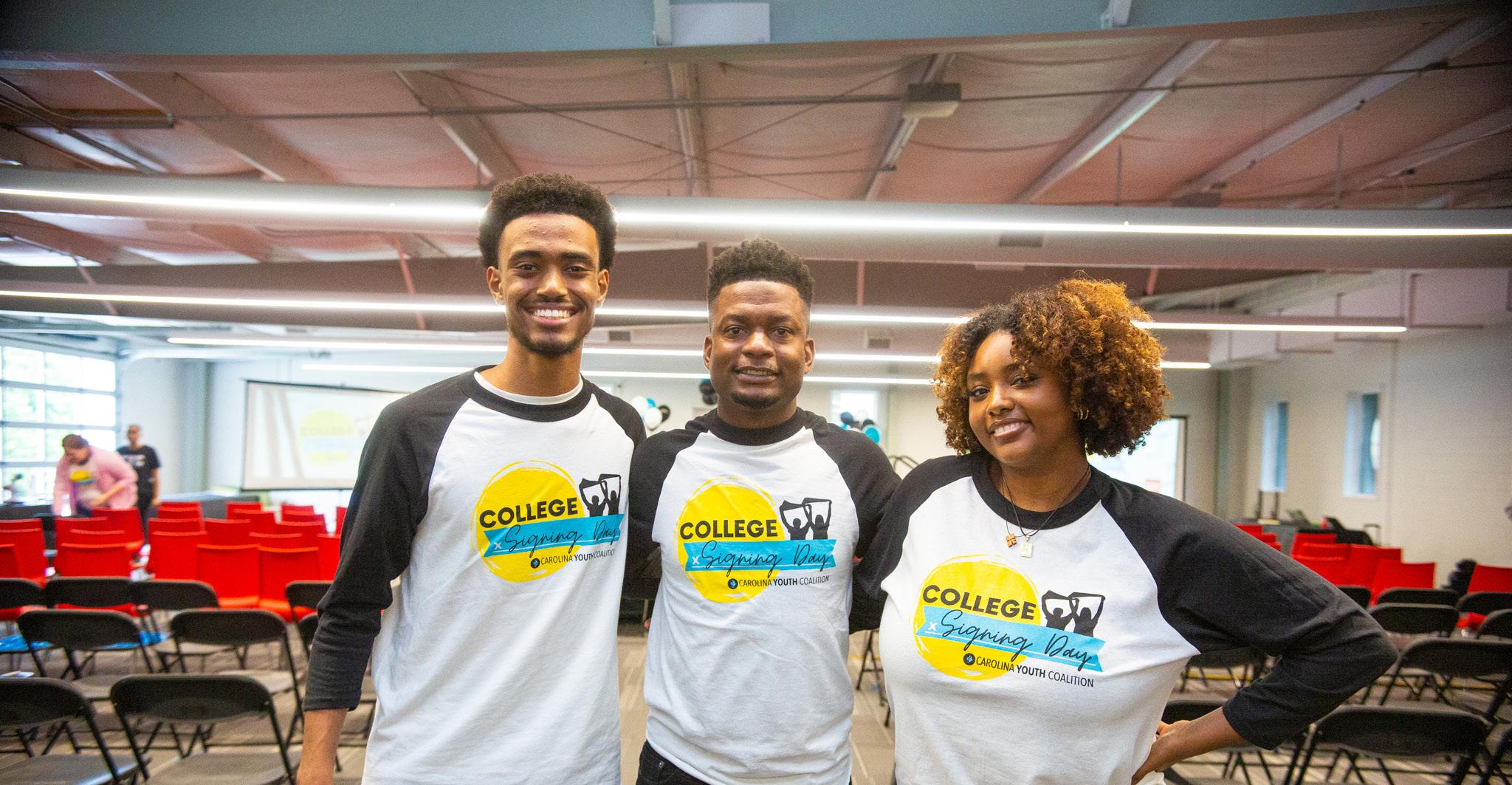
$1,150,000
$5,400,000
Chart 1 shows an approximate breakdown of CYC’s funding sources. Approximately two-thirds of revenue comes from corporations and foundations. Chart 2 includes CYC’s Flourishing Fund fundraising efforts. The Flourishing Fund is a $10M campaign that was successfully completed by June 2024. Approximately 90% of funds raised will go toward operating expenses and program expansion while 10% will be utilized for Fellow scholarships. Chart 3 shows a breakdown of CYC’s FY2024 expenses. CYC spends 71% on administrative expenses and 18% on fundraising efforts. Programming costs make up 17% of expenses.
Below is a detailed breakdown of CYC’s Torch Fellow program cost for one student each year. On average, CYC is spending 66% of its costs on staff support. Approximately 14% is spent on space for programming (including building improvements, lease payments, Internet, phone, furniture, and related office equipment).
In FY2023, CYC served 115 Fellows and approximately 84% of College Fellow Program expenses were spent on staff payroll dedicated to the mentorship and support of College Fellows. About 13% of expenses can be attributed to college persistence support in the form of care packages and engagement programs.
In analyzing the breakdown of program costs per student, several key insights emerge. Mentor engagement events and college mentor background checks account for a relatively small percentage of the total cost, emphasizing their cost-effectiveness in fostering student-mentor connections. The college counseling system also stands out for its value, representing a moderate portion of the expenses, considering its significance in guiding students toward higher education. College persistence support, encompassing engagement programs and send-off packages, is a substantial slice, indicating the organization’s commitment to ensuring ongoing success for its students. Staff support constitutes the largest portion of the total, playing a vital role in delivering impactful programs. Collectively, this breakdown displays a clear view of the resource allocation, highlighting the total program cost per student. Moving forward, it’s crucial for the organization to focus on rent and facility costs as part of its growth model. Lease in FY24 was $7850/ month and will increase in FY25. As CYC expands and establishes additional locations, it is imperative that they are mindful of the expenses associated with renting or maintaining facilities. This will be key in ensuring the sustainability of the organization’s operations.
Our team also built and submitted a tailored, interactive budgeting tool to further assist CYC with their growth and related decisions. This tool was created by utilizing the aforementioned financial information and additional considerations. It allows CYC leaders to project expenses, margins, and other vital factors to assist in making data-driven decisions. The tool was delivered to Executive Director Aaron Randolph in September of 2023.
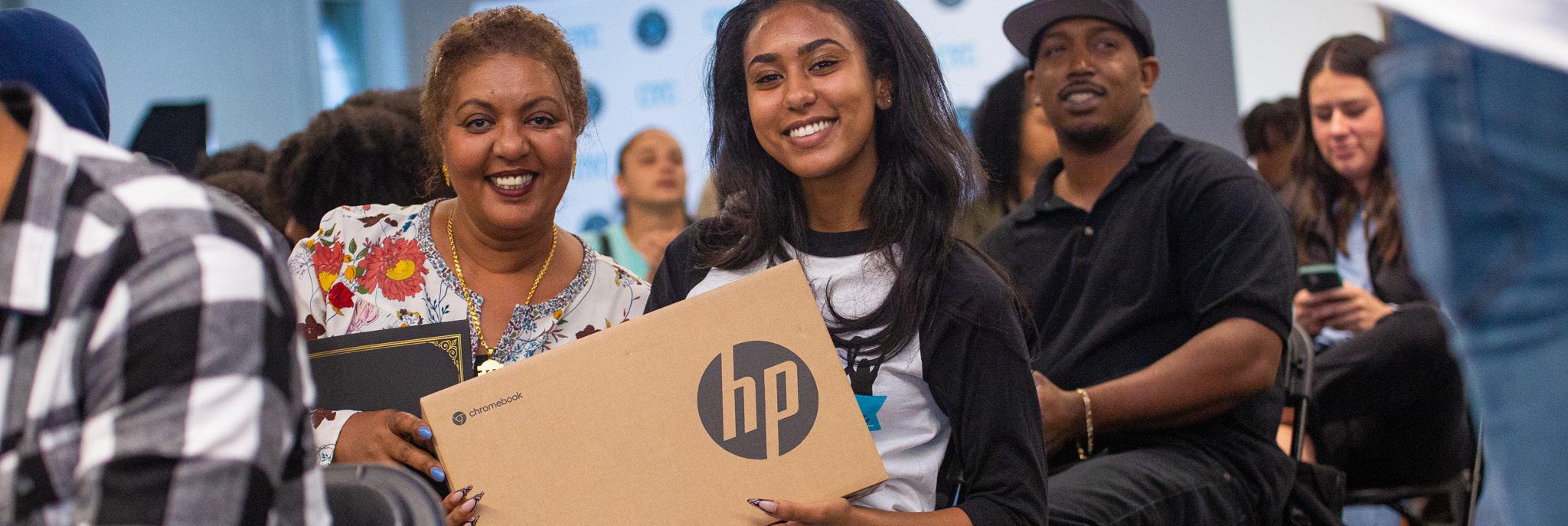
CYC has a committed and passionate Board of Directors. Headed by Co-Founder and Chairwoman Kathryn Kissam, the board has provided the proper guidance for CYC to have a strong start over its five years in the Charlotte area. We’ll utilize this section to offer additional considerations regarding how the board can continue to grow and ensure the organization flourishes.
Non-profit boards generally experience three stages of evolution: Organizing/Founding Boards, Governing Boards, and Institutional Boards4. A few characteristics of each stage is outlined below:
STAGE 1
STAGE 2
STAGE 3
Founding Boards Governing Boards Institutional Boards
• “Friends and family” members
• Generally small, 5-7 board members
• Board members are active in some aspects of the day to day of the organization
• Committee structures are formed and fully operational
• Larger membership, 11-15 members
• Board members are removed from day to day activities and are providing more guidance and stewardship
• Duties are focused on long term needs and priorities of the organization
• Maximum board membership, 19-27 members
• Viewed as a fundraising and community-wide board
CYC would likely be considered a founding board working towards a full governing board status. This formal transition by FY26 will further help the organization’s growth, avoid member burnout, and cement systems that improve governance oversight and capacity.
4 Boardsource - bit.ly/47R4ikj
The table below provides select activities that differentiate a working board form a governing board5
• Actively participating and planning day to day actives related to programming
• Taking part in key meetings related to the programming of the organization
• No letters of commitment or confirmed give/ get expectations
• No formal committee structure
• Letters of commitments are on file, 100% of board members are meeting their annual give/ get goal
• No active involvement in day to day programming, events, or meetings
• Committee structures are fully operational and led by board members
• Conducts formal evaluation of the Executive Director
• Conducts their own self-assessment and performance reviews
• Fully responsible for board member recruitment, onboarding, and development
CYC is encouraged to create time to reflect on current board activities and needed adjustments as they evolve towards a governing board.
At the time of this writing, CYC has eight board members. The demographics and professional experience of the board members are below:
5 https://boardsource.org/resources/transitioningworking-board-governing-board/
As FY25 approaches, CYC may consider confirming commitments of current board members, assessing needs6 and performance7, and then working to fill any board gaps as the new fiscal year approaches. Specifically, CYC may consider using a board recruitment matrix8 throughout their process.
Our team is providing a number of recommendations to help CYC more towards implementation by FY25: Board Size
We recommend a Board size of 11 - 15 members
CYC is encouraged to consider building a board that reflects the gender enrollment breakdown of CMS: Approximately 51% male and 49% female
CYC is encouraged to consider building a board that reflects the race/ethnicity enrollment of CMS9
CYC may consider adding future board members with the following expertise areas or direct involvement with:
Real Estate High Education
Marketing/PR/Social Media
CYC Fellow/Alum
Parent of Fellow
Mecklenburg County
Charlotte Mecklenburg Schools
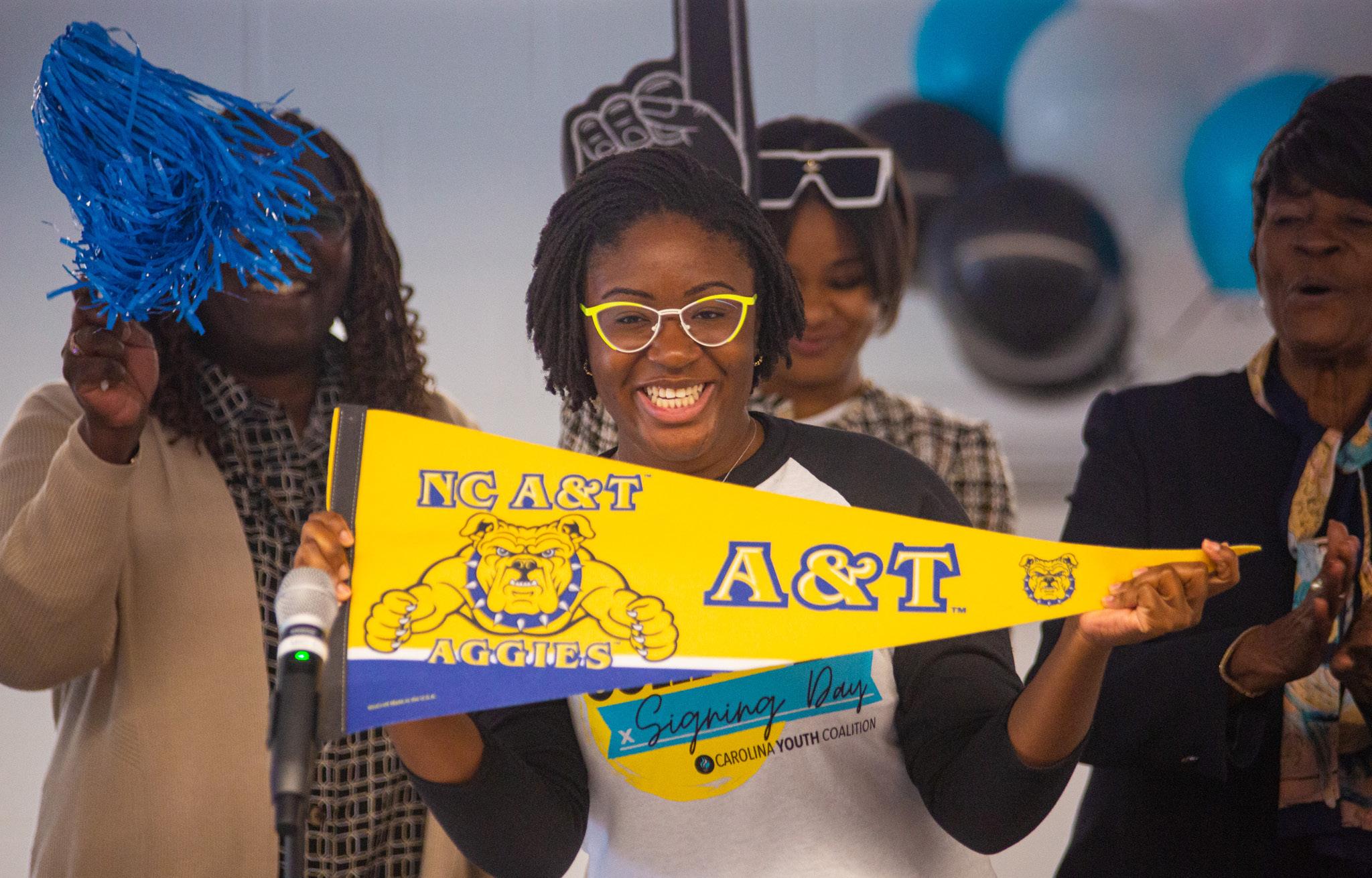
CYC’s core focus to nurture and propel highachieving, under-resourced students to and through college is evident throughout the organization. Our team also wanted to hear directly from Fellows to understand their thoughts and experiences with CYC and how they might inform this strategic growth plan. We built a tailored survey and worked with CYC staff to distribute it to College Fellows since they have the most experience with CYC. Trends from the survey can be found below.
Most Value Programming Aspects 17/17
College Advising Support
Scholarship Opportunities Mentorship Opportunities
• Growth opportunities for current programming
• Internship opportunities for Fellows
• Peer mentoring
• Social events to connect Fellows (in High School and for those on the same college campuses
• New programming ideas
• Additional SAT Prep
• Post Undergraduate Advising
• Internship / job placement support
• Financial literacy
Certain aspects of Fellow’s feedback align with this strategic growth plan’s overarching recommendations and goals. Other elements should be reviewed until the organization has additional capacity to consider the best way to implement the feedback.

Our team has leveraged our research and findings from this process to provide four main recommendations and related goals. CYC should review these offerings in preparation to reach these goals and further support under resourced students to and through college.
Associate Executive Director of Persistence & Evaluation
• Persistence Coordinator
Associate Executive Director of College Programs
• Associate Director of College Programs
• (2) Director of Academic Success
• Associate Director of College Success
• Associate Director of College Freshman
• Associate Director of Writing
• Associate Director of STEM Learning
• Associate Director of Underclassmen
• Deputy Director
• Administrative Assistant
Director of Community and Culture
• Operations and Engagement Coordinator
• PT Van Driver
Goal 1: CYC will hire an Deputy Director by January 2025.
• By March 2024 or sooner (as budget allows), CYC should consider employing a Deputy Director role to serve as the Executive Director’s second in command to oversee and assist with the launch of the Southwest Campus.
• The role will increase the Executive Director’s capacity to strategize and execute the potential expansion to a third site. This role will also help prevent burnout and fatigue of current leadership.
• Also, the role will enable the Executive Director to ensure the stability and continuity of culture throughout the organization.
Goal 2: CYC will implement a board-approved succession plan by July of FY25.
• Having a succession plan is essential for CYC. A succession plan outlines how an organization will transition its leadership and key roles when current leaders step down or can no longer fulfill their responsibilities. At the time of this writing, Aaron Randolph, the current Executive Director of CYC, did not anticipate a transition from the organization within the next three years (FY27).
• CYC may also consider implementing a sabbatical policy. Although sabbaticals serve a different purpose than succession plans, it can be a helpful practice to prevent burnout from key leaders of an organization while also creating space to identify practices that need to be tightened while the leader is away. Upon request, our team can provide additional details regarding best practices for sabbaticals and how CYC may implement a policy within the next fiscal year.
• The following plan will help CYC mitigate the risks associated with unexpected leadership changes, retirements, or departures. A
“CYC shined a light on the hidden opportunities for lowincome kids to fund their college education. If it wasn’t for CYC, I would’ve drowned in stress from the college search and application process and settled for a much lower standard for financing my college education out of lack of insight and fear.”
“....And
to Lizzy, thank you
so much for
your
mentorship and constant support. Thank
you for being patient and understanding as I worked through my social and verbalization issues as well as complications that came up due to personal circumstances. I couldn’t have done it without you. All the best, Tina.”
robust succession plan ensures that the organization’s work can continue for years to come, regardless of changes in leadership. The next page outlines the two phases.
• If the Executive Director (ED) needs to step down immediately (short-term is seen explicitly as a 3-month absence or less, where three options could be implemented).
• A short or long-term succession plan is required for an absence that is planned. This should be communicated by the ED to the Board of Directors.
• The Deputy Director or an executive leader in a similar position can take over, where the Board of Directors accredits CYC staff to follow through with the terms, including the appointment of an Interim ED, at their next meeting.
• A non-staff alternative to take over as the Executive Director, for this option, the Executive Committee will find a list of candidates who would take over as Interim ED; if the current staff member is unable to take over as interim or is underqualified, the Executive Committee can recruit from the outside.
• A cross-training option, where if possible, the ED would develop a plan for crosstraining of staff to ensure the continuity of staff operations.
• A long-term succession plan is required if the Executive Director is expected to be absent for three or more months. The plan will follow that of the short-term plan.
• In the event that an internal staff member assumes the role as interim ED, the
Executive Committee will give immediate consideration to temporarily backfilling the management position left vacant by the Interim ED.
• A permanent absence is defined as: it is firmly determined that the ED will not be returning to the position.
• In the event of a permanent absence, the ED gives a minimum of 3 months’ notice, with a pertinent preference of 12- 6 months–the procedures and conditions shall be the same as for a long-term temporary absence but with the additional step of creating a search process for a permanent successor to the ED.
• The ED, with the Board of Directors’ approval, should appoint a Transition and Search Committee within 15 days to implement an ED search, and interview process. This process should lead the transition to a new permanent ED.
• The ED should remain available for questions and transition support as requested by the new ED.
CYC should maintain an updated version of the organization’s staffing chart, budget, strategic plan, and partnership agreements. Such documents should be kept accessible to the board. Lastly, the proposed succession plan should be presented for board approval prior to official implementation. CYC’s Succession Plan is to be reviewed biennially by the Board of Directors.

See below for the Succession Plan divided into action steps leading to a transition. This plan is not meant to be exhaustive yet to outline critical actions related to a quality succession plan. CYC may consider building off this plan to fit the organization’s needs.
Goal
Generate an updated version of the organization’s staffing chart, budget, strategic plan and partnership agreements/MOUS.
In the event of a long-term, short term or permanent absence, ED gives written and verbal notice of absence to the Board of Directors.
ED proposes a transition plan based on the Succession Plan above to be approved by the Board of Directors.
Responsible Party Target Date
Executive Director / Deputy Director 24 months prior to transition & ongoing
ED completes the following tasks to be included in the proposed transition plan:
• Build or update the ED job description and post the position (with board approval)
• Meet with large individual and corporate funders to confirm their commitment throughout the transition
• Meet with internal staff to ensure the team is well equipped for the transition
In the event of a long term or short term absence, one of the following actions should be made:
• Deputy Director selected to serve as Interim ED.
• A non-staff alternative to take over as the Executive Director. The Executive Committee will begin a search for Interim Candidates.
• CYC staff are cross trained by the ED.
In the event of a permanent absence, the Board of Directors appoints a Transition/Search Committee within 15 days of receiving the notice.
Executive Director / Deputy Director 12-6 months prior to transition (preferred) and a minimum of 3 months required.
Executive Director / Deputy Director 12-6 months prior to transition (preferred) and a minimum of 3 months required.
Executive Director 3-6 months prior to transition
Board of Directors/ Executive Committee/ED 3-6 months prior to transition
Board of Directors/ ED 3-6 months prior to transition

Goal 3: By FY27, CYC will employ 2 additional Director of Academic Success positions, serving the Torch Fellow program.
• Leading up to the fall of FY27, CYC should anticipate serving 450-500 students depending on the status of East campus renovations. Therefore, CYC should consider adding an additional Director of Academic Success focused on Torch Fellow support to amount to seven Torch Fellow Programfocused roles organization-wide.
• Adding an additional Director of Academic Success will allow CYC to maintain a 1:60 staff-to-fellow ratio. This role should be assigned to the Southwest campus to oversee the future growth and development of the Torch Fellows.
• CYC recently hired two staff members serving the Torch Fellows Program: the Associate Director of Writing and the Associate Director of STEM Learning. Also, CYC recently employed one staff member serving overall CYC operations: the Operations and Engagement Coordinator. With the acquisition of new team members, we recommend sharing staff skills and time across the East and Southwest campuses leading up to hiring an additional Director of Academic Success (dedicated to the Southwest Campus) by FY27.
Goal 4: CYC will employ one additional College Fellow Program role by FY28.
• Once the number of College Fellows at CYC reaches 240 (around FY26), we recommend CYC hire an Associate Director of College Success to support College Fellows to maintain a 1:80 staffing ratio.
• Primary staff responsibilities will focus on case management dedicated to fostering strong communication, support, and coaching to College Fellows.
• As CYC grows, we recommend College Director caseloads be assigned by one or more of the following criteria:
• 1:80 ratio
• Anticipated growth in College Freshmen
• Fellow’s site location where they graduated from (East, Southwest, North)
• Geographic area student is attending college
• Opportunity exists for an increase in inperson mentorship and college site visits given the College Director’s proximity to the Fellow’s college location.
• By FY28, CYC is projected to serve 370 College Fellows (including 125 College Freshmen). CYC may want to consider employing an Associate Director of College Freshmen to provide the proper staff to Fellow ratio (1:80) for College Freshmen and the College Fellow Program as a whole by FY28.
Recommendation 2: Programmatic Growth
Goal 1: CYC will expand to serve 870 Fellows by FY28.
Chart A: Projected Number of Fellows Served from FY24-FY28 (Including East Charlotte Campus Renovations)
*Site 1: East Campus - East Charlotte, Site 2: Southwest Campus - South Charlotte, Site 3: North Campus - North Charlotte *Chart indicates renovations beginning in FY26 and completed by FY27.
** These 50 Fellows will be redistributed to Sites I & II if CYC does not open a third location by FY28.
• Our team recommends that CYC anticipate serving 870 Fellows by FY28 (Chart A). These projections include the expansion from one to three site locations by FY28 and completed renovations to the East campus.
• CYC’s current site (East campus), located in East Charlotte, holds a maximum occupancy of 200 fellows. Opportunity for renovations may present in FY26, enabling CYC to service a maximum of 300 fellows at this site. The projections above (Chart A) include the pending renovations to begin in FY26 and finalize by FY27.
• Should CYC choose not to proceed with renovations in FY26, the organization should anticipate serving 770 Fellows by FY28 (Chart B).
• CYC’s second site (Southwest campus) was donated to the organization by CPI Security in 2023. CYC anticipates the site to be fully operational by January 2024. The maximum occupancy for the new location is approximately 200 Fellows.
• By setting a minimum number of students served per school, CYC may have a clear path to obtaining growth goals. Given that CYC currently serves 40+ high schools in the Charlotte area, serving at least ten students each year by FY26 would ensure CYC serves 400+ Torch Fellows.
• This strategy paired with local proximity to schools such as Palisades High School, Olympic High School, and South Meck High School position CYC with a geographic advantage creating new opportunities for an increase in the number of students served.
Goal 2: CYC will serve an additional 50 Fellows by exploring the option to open a third location in North Charlotte in FY28.
• To ensure high school students in North Charlotte have access to CYC services, opening a third location (Site 3 - North
Campus) should be considered. North Charlotte includes three underserved geographic areas identified by the City of Charlotte as the following Corridors of Opportunity:
• Beatties Ford/Rozzelles Ferry
• Graham Street/North Tryon
• Sugar Creek/I-85
• These locations have been identified as areas that require the investment of programs to increase the health and education of low-income children, deconcentrate poverty, and increase access to higher education. Currently, North Charlotte lacks college persistence support for underprivileged and first-generation college students.
• CYC currently serves four school partners located in the North Charlotte area deeming the third location a strong fit for localized programming: Mallard Creek High School, Hopewell High School, Julius Chambers High School, and North Mecklenburg High School
• We recommend CYC consider securing a third site in North Charlotte through one of the following strategies:
• Option 1: Seek a third site location, preferably a donated facility and situation similar to the second location (Southwest Campus) and partnership with CPI.
• Option 2: Seek a partnership for a co-habitated facility with a corporate partner located in North Charlotte: TIAA, Equitable, etc.
• Option 3: Considering co-location a CYC area within a partner high school in this geographic area.
• Option 4: If none of the above options are suitable for CYC, the 50 Fellows will be distributed to Sites I & II
CYC should consider the following factors before committing to Option 1:
• Does the partnership allow for the accessibility of programming for Fellows?
• Does the partnership provide a space at little to no cost that can hold an occupancy of 200-300 students?
• Does the partnership equip CYC to provide enhanced resources/support to Fellows?
• Does the partnership provide the opportunity for long-term habitation?
Goal 3: CYC will maintain a 1:60 staffing ratio when expanding to a third location in FY28. The chart below indicates Fellow to Staff ratio growth patterns over the past year:
*Torch Fellows: 1:60, College Fellows: 1:80
Our team recommends maintaining a ratio of 1:60 for Torch Fellows and 1:80 for College Fellows to maintain cultural standards previously set within the organization. Therefore, CYC should start by serving 50-60 Fellows at the third location to help deliver a quality student experience.
Goal 4: CYC will serve 370 College Fellows by FY28. CYC will serve 370 College Fellows by FY28 as a result of the increase in Torch Fellows served 00through the acquisition of two additional locations.
• In FY23, CYC employed two College Program
Directors and served 115 College Fellows. In FY24, CYC will have two College Program Directors serving 155 fellows. As the College Fellows Program continues to grow, we recommend maintaining a staff to Fellow ratio of 1:80.
• Below is an outlook on projected growth for College Freshmen Fellows:
In FY23, CYC assigned one staff member to 40 College Freshmen Fellows. CYC anticipates serving an increasing number of College Freshman Fellows, stabilizing around 125 Fellows in FY28. However, CYC should anticipate an increase in the number of College Freshman served in FY30-31 pending the opening of a third location in FY28.
Goal 1: Secure a facility that will meet 80% or more factors indicated on the Expansion Checklist to qualify as a viable expansion site.
• CYC will reference the Expansion Checklist as a decision-making tool and guide for organizational growth. This checklist will ensure that CYC has a systematic approach to securing facilities that align with their organization’s culture and needs.
+ Fellow Growth Strategy
Goal 1: CYC will consider serving a minimum of 10 Fellows per partner school by FY26.
• We advise CYC to set a minimum number of 10 Fellows served per school to maximize organizational efficiency and deepen partner relationships.
• Currently, there is no minimum number of CYC Fellows that schools are required to support in the program each year. The suggested minimum number of 10 Fellows should be viewed as a goal or target number.
• CYC may consider prioritizing schools where they can serve a minimum of 10 Fellows by FY26. From there, CYC can still work with Fellows from schools where the minimum number is less than 10.
• CYC currently serves students from 43 high schools throughout Charlotte. CYC is serving less than 10 students in 33 of those schools. Seeking to serve a minimum of 10 students in each of those schools by FY26 would allow
from 99 current Fellows to 330 Fellows from this

Recommendation and Goal
1 Organizational Expansion
A CYC will hire a Deputy Director to serve as the ED’s second in command.
B CYC will vote on and approve a Succession Plan.
C CYC will hire two Associate Directors of College Access to strengthen college counseling capacity at East and Southwest Campus (Site 2).
2 Programmatic Growth
A CYC will serve 70 Fellows at the Southwest Campus (Site 2).
B CYC will locate and secure a third CYC location in the North Charlotte area.
C CYC will acquire the remaining office suite in the current office park and make renovations to increase capacity” by July 2026
D CYC will serve 50 Fellows at the North Campus (Site 3).
E CYC will serve 870 Fellows organization-wide.
3 Partnerships + Fellow Growth Strategy
A CYC will implement the three-tier volunteer management process.
B CYC will consider serving a minimum of 10 Fellows at each partner school by FY26.
* These positions were both filled in August 2024.
Responsible Party
Board / Executive Director January 31st, 2025
Board / Executive Director July 31st, 2025
Executive Director /Deputy Director August 31st, 2025*
Site Director - Southwest Campus May 31st, 2025
Executive Director / Deputy Director April 30th, 2026
Executive Director / Deputy Director July 31st, 2026
Associate Director of Underclassmen Programs & Special Projects August 31st, 2027
Executive Director / Deputy Director July 31st, 2028
Director of Community Engagement & Culture January 31st, 2025
Deputy Director July 31st, 2026
CYC is projected to experience substantial growth between now and FY28 with the acquisition of two new locations cementing their presence in East, Southwest, and North Charlotte. Within the upcoming fiscal year, CYC should focus on sculpting a solid foundation for the organization by implementing the three-tier volunteer management process and approving a succession plan. Also, pending budget approval, CYC should consider employing an Deputy Director to provide leadership and support through this important phase of growth.
Next, CYC will open its doors in January 2024 to 50 Fellows at the Southwest Campus. Using the Expansion Site Checklist outlined in this plan and lessons learned from opening the second site, the finalized Expansion Site Checklist should be approved by the Board of Directors in June of 2024. This checklist will serve as a guide to the sound acquisition of a third site and those thereafter.
From April 2023 to September 2023, SchermCo reviewed and analyzed CYC’s sustainable path forward for its funding, program impact, and strategic vision. For continued impact, CYC may focus on the following six priorities:
• Identifying and hiring four full-time positions over the next five years.
• Increasing the number of Fellows served to 870 by FY28 by deepening school partnerships and setting a minimum number of Fellows served per school per year.
• Considering a shared-cost agreement with two or three top partner schools.
• Locating and expanding to a third site location in North Charlotte.
• Implementing a three-tiered volunteer management process.
• Approving and utilizing the Expansion Site Check-list to guide replicable growth across the organization.
The SchermCo team wishes CYC continued success, and we look forward to the work they will achieve and continue to develop in the years to come.

Stakeholder
1 INTERNAL
Maria Diaz
Dan Kahn
Kathryn Kissam
Tim Myers
Aaron Randolph
JaDora Ross
Molly Shaw
17 survey responses
2 EXTERNAL
Tony Alleyne
Kim Beal
John Boumgarden
Sam Clowney
Julie Cross
Heather Hayes
Patricia Hoke
Heather Jones
AiLun Ku
Jimmy McQuilkin
Jennifer Parker
Glenn Starnes
Erik Turner
Director of Persistence & Evaluation, Carolina Youth Coalition
Carolina Youth Coalition Board Member
Co-Founder & Board Chair
Associate of Underclassmen Programs, Carolina Youth Coalition
Co-Founder & Executive Director of Carolina Youth Coalition
Associate Director of Program Operations, Carolina Youth Coalition
Carolina Youth Coalition Board Member
Executive Director, Delaware College Scholars
Director, David and Nicole Tepper Charitable Foundation
Postsecondary Leadership Coach, OneGoal
Chief Program Officer, Road to Hire
Director, Corporate Social Responsibility, TIAA
IB Coordinator, East Meck High School
Executive Director, Women's Impact Fund
Scholarship and Financial Aid Coordinator, College Advising Corps
Executive Director of Opportunity Network
Executive Director of Urban Promise Charlotte
Family and Community Engagement Specialist, Central Learning Community, CMS
Principal, Harding University High School
Principal, Central Piedmont Early College High School